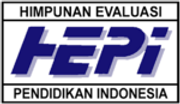Cultural investment of Javanese Krama language in Islamic elementary schools
Abstract
Language is the most essential communication tool for human beings. Languages possessed by humans are so dynamic that it continues to evolve over time. The language instruction was termed Linguistic Etiquette. In Linguistic Etiquette there is a term of speech levels. The use of language in Islamic Elementary School (Madrasa Ibtidaiyah/MI) was implemented in an integrated manner with the relationshipbetween fields of study. Javanese is the mother tongue of the Javanese. The society levels of speech in Javanese language are Ngoko, Krama Madya, and Krama Inggil. The Javanese practices Krama level language to communicate between students with teachers, among teachers and teachers with headmaster of MI at school. This research was conducted qualitatively to informants from MI Tegalwaton and MI Al Islam Bonomerto. The researcher used qualitative descriptive approach to describe the state or phenomenon status of the data obtained from the research object, which then analyzed. This study are investigating MI programs in instilling Javanese `Krama` language, the results of Javanese `Krama` language cultural cultivation in MI Tegalwaton and MI Al Islam Bonomerto as well as obstacles experienced by the students in using Javanese `Krama` language.
Keywords
Full Text:
PDFReferences
Anas, Z. (2011). Pendekatan Brain Based Learning dalam Penanaman Nilai Budaya Melalui Pendidikan Formal. Jurnal Komunitas, Volume 3, 150-158.
Budiman, A. (2017). Behaviorism in Foreign Language Teaching Methodology. English Franca, 1(02), 101-114.
Chaer, A. (2009). Psikolinguistik Kajian Teoritik. Jakarta: Rineka Cipta.
Cresswel. (2007). Quantitative Inquiry & research design : Choosing among five approaches. California: Sage Publication Inc.
Djiwandono, P. I. (2014). Pengembangan Pembelajaran Sastra Lokal untuk Membangun Karakter Positif Anak Sekolah Dasar. In Proceeding of Seminar NAsional Paramasastra (1-16). Surabaya: Universitas Negeri Surabaya.
Ghazali, S. (2000). Pemerolehan dan Pengajaran Bahasa Kedua. Jakarta: Dikti Depdiknas.
Hong Shi. (2017). Learning Strategies and Classification in Education. Institute for Learning Styles Journal, Volume 1, 24.
Ksuchak, E. P. (2009). Educational Psychology Windows on Classrooms. New Jersey: Merrill Prentice Hall.
Ni Wayan Sartini. (2009). Menggali Nilai Kearifan Lokal Budaya Jawa Lewat Ungkapan (Bebasan, Saloka dan Peribahasa). Jurnal Ilmiah Bahasa dan Sastra, V, 28-29.
Owens, R. (2012). Language Development an Introduction. New York: Macmillan Publising Company.
Poedjosoedarmo, S. (2017). Language Propriety in Javanese. Journal of Language and Literature, 17(1), 1-9.
Rachim, R. L., & Anshori, H. F. (2007). Nilai budaya Jawa dan perilaku nakal remaja Jawa. Indigenous: Jurnal Ilmiah Psikologi, 9(1), 30-43.
Richard, J. (2009). Methods in Language Teaching. Cambridge: Cambridge University Press.
Sanjaya, Wina & Andi Budimanjaya (2017). Paradigma Baru Mengajar, Jakarta: Kencana.
Sedyawati, E. (2003). Warisan budaya takbenda: masalahnya kini di Indonesia. Pusat Penelitian Kemasyarakatan dan Budaya, Lembaga Penelitian, Universitas Indonesia.
Slavin. (2009). Belajar dan Pembelajaran. Jakarta: Pranada Media Group.
Suri, Mutya. And Isyam, Amri (2013) Teaching Vocabulary to Elementary School Students Through Colouring Pictures Activity. Journal of English Language Teaching, Vol. 1 No. 2, Maret 2013, Serie F
Suwardi, Anitah, W. S., Akhyar, M. & Asrowi. (2017). Gender Bias in Islamic Textbooks for Muslim Children in Indonesia. Attarbiyah: Journal of Islamic Culture and Education. 2 (2). 214-235.
Staddon, J. (2017). Theoretical Behaviorism. In In Behavior and Philosophy (pp. 217-241).
Utari, N. R. D. (2012). Kemampuan Berbahasa Jawa pada Siswa Sekolah Dasar di SDN Tandes Kidul I/110 Surabaya. Skriptorium, 1(3), 83-85.
Wahyuni, Desri and Syafei, AFR (2016) The Use of Action Bingo Game In Teaching Vocabulary to Elementary School Students. JELT Vol 5 No 1 Serie C September 2016
Wedhawati. (2006). Tata Bahasa Jawa Mutakhir. Yogyakarta: Kanisius.
DOI: https://doi.org/10.18326/mdr.v10i2.148-165
Refbacks
- There are currently no refbacks.
Copyright (c) 2018 Khulukul Khuzaefi

This work is licensed under a Creative Commons Attribution 4.0 International License.

This work is licensed under a Creative Commons Attribution 4.0 International License.
Program Studi Pendidikan Guru Madrasah Ibtidaiyah (PGMI)
Universitas Islam Negeri (UIN) Salatiga, Indonesia
Jl. Lingkar Salatiga Km. 2 Pulutan, Sidorejo, Kota Salatiga, Jawa Tengah 50716,
Telp. (0298) 323706 – Fax. (0298) 323433
Technical Support: jurnalmudarrisa@iainsalatiga.ac.id
P-ISSN: 2085-2061
E-ISSN: 2541-3457



